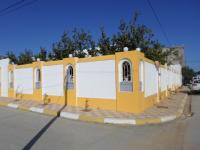The sun, the almost white beaches with a 300-day bathing season, the spices and a unique and inimitable culture. We are talking about Tunisia, a land to be discovered! Currently it has become a very popular destination for both young people and especially for the elderly, because, especially fo ...
Moving to Tunisia: everything you need to know!
The sun, the almost white beaches with a 300-day bathing season, the spices and a unique and inimitable culture. We are talking about Tunisia, a land to be discovered! Currently it has become a very popular destination for both young people and especially for the elderly, because, especially for civil servants, allows you to receive the pension totally tax-free. But Tunisia is not just that. Whether you simply want to spend time away from the daily routine or you want to buy a property in Tunisia, the solution is only one, and it is right in front of you! Well yes, even today, we at Realigro have created a guide tailored to you and your needs as a traveler or potential citizen. So, leave atlases, maps and calculators because all the information you need, we will serve you now! So, let's get started!
You know us now, so let's start with a bit of history of this country (also because it is really worth it!). Since
It was prehistoric, Tunisia was inhabited by Berber tribes, later subjected to the rule of the great Roman Empire, and then give way to the Turks in the seventh century, who have passed on the traditions and culture currently in force in this country. Currently, in fact, this land is crammed with symbols of Byzantine art and Islamic religion. In 1956 it became a Presidential Republic with its own Constitution and, since then, the rights and freedoms of citizens have been guaranteed, without distinction of gender.

From a geographical point of view, the national surface is particularly desert for 40% but the remaining 60% of the territory is very fertile. Trade therefore makes use of products derived from the primary sectors, widely exported to all other countries. The Tunisian climate is wonderful to say the least. Along the northern coast is mainly Mediterranean, and then turn into desert in the central area. Temperatures range from a minimum of 16 degrees in winter to a maximum of 33 in summer.
From the point of view of landscape, Tunisia boasts about 8 world heritage sites recognized by UNESCO including: the Medina of Tunis, with over 600 monuments including palaces and majestic fountains and the famous National Park of Ichkeul which houses the lake of the same name.
Let's talk now about how you can reach this destination. Tunisia has five airports, which operate daily international flights.
As for the health facilities, there are about 250 public and private health facilities on the territory with very low costs and highly qualified staff. Healthcare has become a particularly powerful economic sector.
Let us now turn to the tax breaks that can be enjoyed in this state. Taxes are very favorable and exempt from tax for 80% of income, while the remaining 20% applicable is reduced by 16% if there is the situation of "dependent spouse".
But how do you live in Tunisia? Although it belongs to Africa, it is quite open to international relations, and it is absolutely not fundamentalist. Compared to many other neighbouring countries, in Tunisia it is possible to buy alcohol everywhere and women study and dress Western-style.
How much does it cost to buy a property in Tunisia? It should be pointed out that foreigners are allowed to buy a property in Tunisia, unlike agricultural land, which is leased. The capital, Tunis, is particularly popular, but also Hammamet, on the coast, is a good alternative. Prices start from 700 euros per square meter for the most luxurious villas, but you can also find properties at much lower prices.
We hope that this guide may have been useful for your trip to discover the beautiful and exotic Tunisia!
Moving
Move to Perù Move to Philippines Move to Thailand
Move to Morocco Move to Tunisia Move to Malaysia
Moving to Lousiana Move to Puerto Rico Move to Brazil
Move to Madagascar Buying a property in a paradise ? 5 best American states to move
Related Insights
-
Moving to Tunisia: everything you need to know!
Real Estate Listings
For sale Villa, Tunisia, Djerba, Baani Magaal, 4126 Beni Maaguel
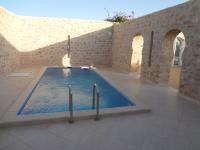
For sale
Villa
9940 m²
For sale House, Tunisia, Mahdia, Mahdia, El Jem, Túnez

For sale
House
200 m²
For sale Hotel, Tunisia, Sousse, Hammam Sousse, VJ94+637, Sousse
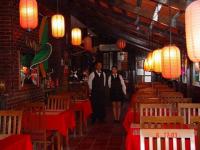
For sale
Hotel
1430 m²
For sale Other (Commercial), Tunisia, Zaghouan, Zaghouan, zona industriale di Zriba

For sale
Other (Commercial)
1300 m²
For sale House, Tunisia, Djerba, Djerba Midoun, tiguermess
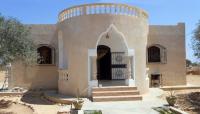
For sale
House
150 m²
For sale House, Tunisia, Djerba, Djerba Midoun, Tiguermess
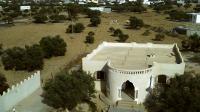
For sale
House
150 m²
For rent 3 Bedrooms, Tunisia, Hammamet, Hammamet Sud, Residenza Bousten Hammamet

For rent
3 Bedrooms
97 m²
For rent 4 Bedrooms, Tunisia, Jendouba, tabarka, Strada provinciale per aindraham tabarka Tunisia

For rent
4 Bedrooms
128 m²
For sale 3 Bedrooms, Tunisia, Hammamet, Hammamet, Résidence TEJ EL BAHR cite AFH MRezgua NABEUL
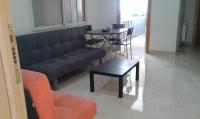
For sale
3 Bedrooms
69 m²

